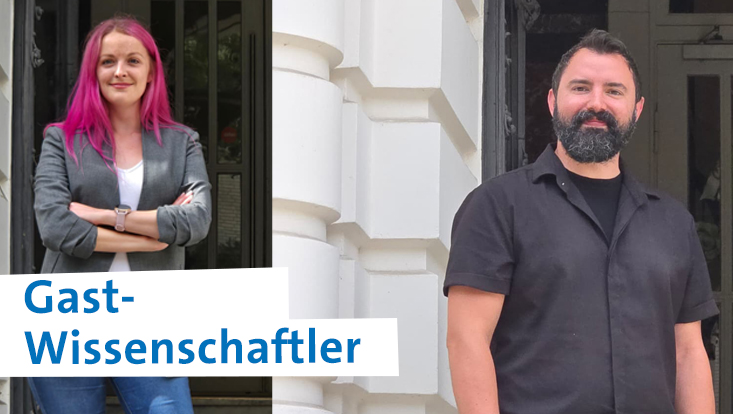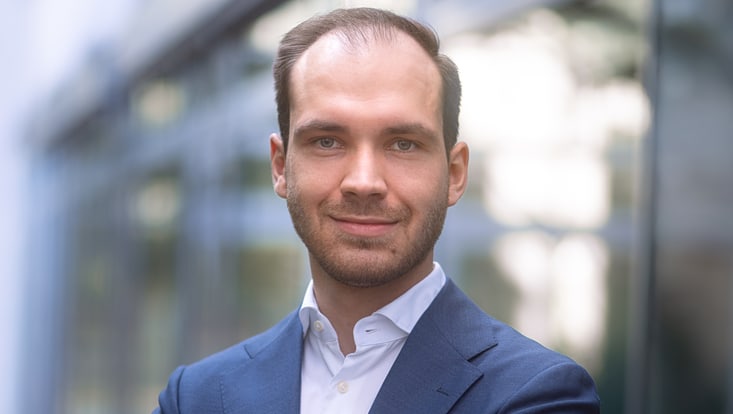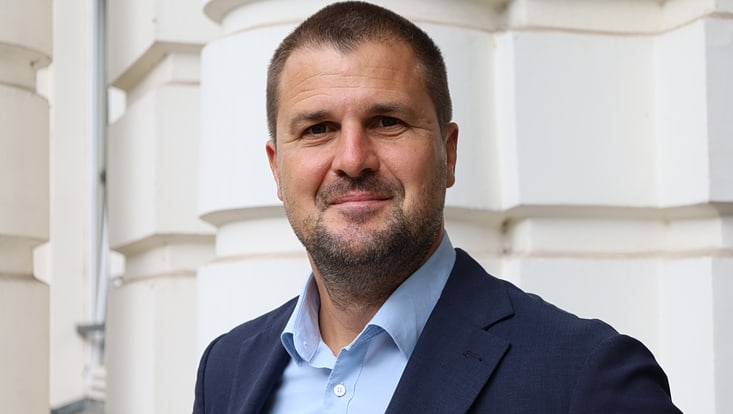InterviewThe Influence of Political Decisions on Our Healthcare System
24 July 2025, by Areez Sheikh

Photo: privat
How do political decisions affect our healthcare system, and what can we learn from collaborating with other continents on research? Our guest researchers from Iowa, USA, will share insights into their areas of interest.
How do political decisions influence our healthcare system and what can we learn from each other when continents conduct research together? These questions are at the heart of Prof. Meghan Esson’ and Prof. Cameron Ellis’ stay at our Business School. The two academics from the renowned Tippie College of Business at the University of Iowa were guests of the Dean Prof. Petra Steinorth at the Professorship of Risk Management and Insurance from May to July, bringing with them not only expertise but also transatlantic perspectives.
Business School: What brought you to Prof. Steinorths’s professorship at the University of Hamburg Business School?
Esson: I first met Petra at the annual meetings of the American Risk and Insurance Association in 2016 or 2017. Insurance is a small discipline, so you quickly get to know the people who are active in the community, and Petra has always been extraordinarily approachable. We talked back then about a future visit to Hamburg, especially because some of her PhD students were interested in Medicaid topics, which overlaps with my own work.
Ellis: My first encounter with Petra was at a conference a little earlier around 2015. When we met again last year we finally fixed the dates for a common research stay. Hamburg is also a natural choice because Europe, and Germany in particular, plays such a prominent role in the insurance industry.
Professor Ellis, you delivered a seminar while you were here. Is presenting in Germany different from the U.S.?
Ellis: It is hard to generalize because seminar culture in the U.S. varies regionally, but I observed a difference in interaction style: German audiences typically wait until the end for questions, whereas in some U.S. settings, questions might come throughout.
Esson: Discipline matters, too. In health‑economics seminars people usually wait until the end while they interrupt you during the presentation in finance.
What projects are you working on during your stay?
Ellis: I am analyzing how enterprise‑risk‑management (ERM) programs affect firm behavior. Regulators love to mandate these frameworks - think of Solvency II or Basel III–but we still know little about whether compulsory adoption changes real decisions (Ed: Solvency II is the EU insurance regulation and Basel III is the global banking standard). The U.S. provides a good research environment because some states implemented ERM mandates earlier than others, so that we can compare firms across those borders.
Esson: My focus is on so‑called “charity hazard” (Ed: where availability of free care might reduce insurance uptake) in U.S. health insurance. The standard assumption is that if hospitals provide free care, people will consume more of it. But how does this supply-side generosity actually affect people’s decisions about buying insurance and using hospital services? I am measuring how gaining access to charity care changes insurance take‑up and hospital use, especially for households living close to providers.
Your work often shows how policy changes shape hospitals and ambulance services. In your research you showed how well meaning policies can result in more cost for all through behavioral change in people. What can we learn from misdesigned policies and how can we prevent the same thing from happening again?
Esson: That is the underlying question: how do we design a policy that aligns with the outcome we want. The problem is that there are a lot of nuances with big policies. We have to think through about each part of the policy design, which is easier said than done.
Ellis: A good illustration is the Oregon Health Insurance Experiment. In 2008 the state used a lottery to expand Medicaid to low‑income adults. Because coverage was assigned randomly, researchers from Harvard and MIT could measure causal effects. The programme improved financial security but emergency‑department visits actually increased in the short run which is exactly the opposite of what policymakers had hoped for. The lesson is that even sound ideas can produce side‑effects, so we should test reforms rigorously before scaling them up.
Esson: And we have to stay flexible. Once evidence rolls in, governments should be willing to adjust rather than double down on a flawed design.
Since publishing your paper on the misdesigned policy, has anything changed on the policy front?
Ellis: Not really. Medicaid rules have moved a bit, but there has been no dedicated reform of emergency‑care departments.
Which emerging topic in risk management should students keep on their radar and why?
Ellis: Climate finance. Climate change is accelerating and insurance rates for homeowners are going through the roof. New, high‑quality data are finally available, so we can study how firms manage climate risk. This research is becoming publishable at top journals too.
Esson: Artificial intelligence. Insurers already use AI to combat fraud and streamline claims, but algorithms can also perpetuate errors, think of over‑denials in health care. Students should experiment with AI in their own lives, weigh its benefits and dangers, and consider how firms can govern the technology responsibly.
Beyond campus, what has impressed you most about Hamburg?
Ellis: The Alster. I am staying in Mundsburg, and every walk along the canals reveals another beautiful street or bridge with stunning architecture even in residential neighborhoods.
Esson: The city feels incredibly friendly and welcoming. Everyone lets me practice my German and spots like the Miniaturwunderland turned out to be delightful.
What is the key takeaway from your visit?
Esson: The academic exchange has been fantastic. The feedback we received will sharpen our work.
Ellis: I could not agree more. Hamburg has been a productive and very enjoyable place to do research.


